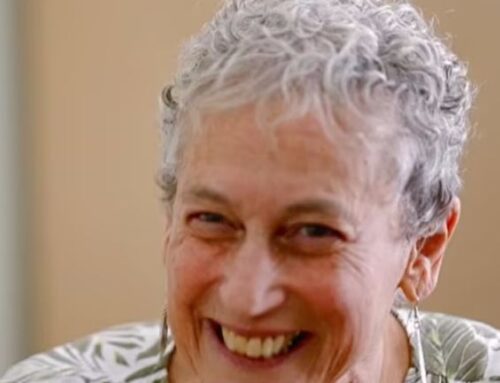On Dec. 1, the Quebec Superior Court ruled that the province’s euthanasia law was inoperable until February because it was in conflict with the existing Criminal Code of Canada prohibitions on homicide.
On Dec. 9, the Quebec Court of Appeal granted permission for the province to appeal the decision, but did not indicate whether it was staying the Superior Court’s decision.
On Dec. 10, Quebec’s Act Respecting End-of-life Care law took effect, 18 months after Bill 52 passed in the National Assembly, and just ten days after a court ruled it inoperable.
On Dec. 18, the Court of Appeal heard arguments about the law, eight days after the province’s Health Minister said the law took effect.
Confused? So was everyone else, with the National Post reporting that the law was “probably” in effect.
The National Assembly passed Bill 52 in June 2014 but put off implementation until last month. Dr. Paul Saba of the Coalition of Physicians for Social Justice and Lisa D’Amico, a disabled woman, challenged the law which permits doctors to medically assist suicides by stating that the province would not charge physicians who hasten a patient’s death.
Lawyers for Saba and D’Amico maintain that a patient’s consent cannot be free and informed without access to all palliative care options, which are lacking in Quebec presently.
Justice Michel Pinsonnault of the Quebec Superior Court ruled that the law contradicts Article 14 of the Criminal Code which states “no person is entitled to consent to have his death hastened on him” and Article 241 which states that anyone who “aids or abets a person to commit suicide” is guilty of an indictable offense. Last February, though, the Supreme Court of Canada threw out the sections on assisted-suicide but stayed the decision for one year to give Parliament a chance to come up with assisted-suicide regulations.
On Dec. 9, after the Quebec Court of Appeal said it would hear the province’s appeal, Health Minister Gaetan Barrette said the Act Respecting End-of-life Care was in effect, and that doctors who caused the death of patients would not be prosecuted. He claimed nothing in the Court of Appeal decision to hear the appeal meant “anything for or against Bill 52 in any way,” and thus it would take effect as scheduled.
Alex Schadenberg of the Euthanasia Prevention Coalition, said in a statement that due to Pinsonnault’s decision, “a doctor in Quebec can still be prosecuted if they participate in an act of euthanasia.” Daniel Weinstock, a law professor at McGill University, said he did not think a doctor would proceed to fulfill an assisted-suicide request or that a doctor who did so would be prosecuted. “The situation is just too up in the air.” Yves Robert of the College des Medecins du Quebec urged doctors to “be prudent” but offered little guidance what that meant.
Barrette said he did not expect “an infinite number of people who are going to ask for access to this procedure” on the first day, but he told reporters “I want to assure the population that Quebec’s health and social services network is ready” to fulfill requests for assisted-suicide. He insisted “the principle of having the choice is something that people want to have.”
In late November, federal Justice Minister Jody Wilson-Raybould requested that Quebec suspend implementing the law while Ottawa prepares its own legislation on the matter. Quebec Justice Minister Stephanie Vallee said “we’re staying the course, obviously.”
Despite the request by the federal minister, lawyers from her department joined their counterparts from Quebec on Dec. 18 arguing against the Superior Court’s decision. They argued that the law respects a Supreme Court decision invalidating the pertinent parts of the Criminal Code forbidding doctor-assisted suicide. Lawyers for Saba and D’Amico argued that assisted-suicide is a criminal act despite the Supreme Court ruling because it had not yet resulted in legislative changes; therefore the criminal law is still in effect. They also argued the law infringes on the right to life enshrined in the Charter of Rights and Freedoms.
The Euthanasia Prevention Coalition was an intervenor before the Quebec Court of Appeal in D’Amico c. Procureure generale du Quebec. EPC counsel Hugh Scher argued that Quebec’s euthanasia law goes beyond the jurisdiction of the province and falls under the jurisdiction of Parliament. The EPC also said, the intentional killing of patients by doctors is not medical treatment or health care, and the lack oversight represents a fatal flaw in the proposed Québec law that puts the safety of the public at risk, contrary to section 7 of the Charter (“Everyone has the right to life, liberty and security of the person and the right not to be deprived thereof except in accordance with the principles of fundamental justice”).




